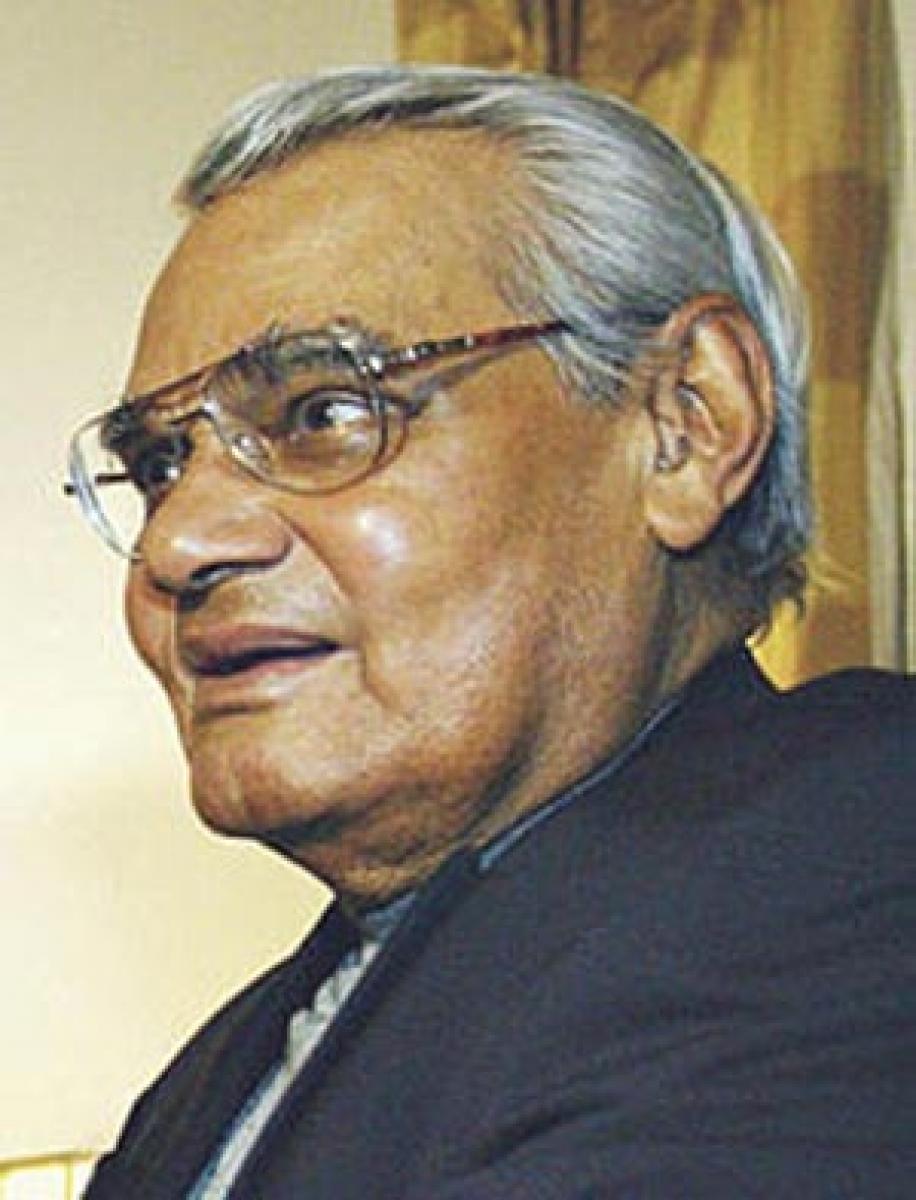Live
- MacBook Air M3 Hits Lowest Price in India: Find Details
- High Court Adjourns Hearing on Allu Arjun's Petition to 4 PM
- Pawan Kalyan praises Chandrababu Naidu at Swarnandhra Vision 2047 document launch
- Chirec International looks to transform education with Chirec 2.0 vision
- Telangana CM Revanth Reddy Responds to Allu Arjun's Arrest in Delhi
- Uddhav Thackeray to PM Modi: Pay attention to Bangladesh, act to end Hindus’ misery
- Allu Arjun Arrested: KTR Reacts on X, Calls Arrest Unfair
- Bold steps by Modi govt in reviving Indian heritage, culture: Union Minister
- What are the charges against Allu Arjun: Understanding the Charges Against Him
- Allu Arjun Objects to Arrest Procedure, Requests Breakfast and Change of Clothes
Just In

Nationalism and its meaning are being debated extensively in the country today. While the current debate has turned acrimonious, things were not always like this.
Nationalism and its meaning are being debated extensively in the country today. While the current debate has turned acrimonious, things were not always like this. In 1962, during the motion of thanks to the President’s Address, C N Annadurai of the DMK made a demand for a separate Dravida Nad. In response, A B Vajpayee called for unity among political parties, while making a case for a strong law of treason
There is a raging debate on nationalism today in the country, after a few students of the Jawaharlal Nehru University (JNU) were arrested for allegedly making anti-national slogans. While the current debate is acrimonious, things were not always like this. We revisit a debate in the Rajya Sabha, 54 years ago.
In 1962, during the motion of thanks on the President’s address, C N Annadurai of the DMK made a demand for a separate Dravida Nad comprising the southern states. In response, A B Vajpayee called for unity among all parties to reduce differences and for a stricter treason law.
‘Accord self-determination to Dravid Nad’
In his maiden speech in the Rajya Sabha on 1st May 1962, C N Annadurai spoke about democracy, socialism & nationalism. He said that the President did not talk about the shortcomings of the Indian democracy, and called for proportional representation system along with a provision for referendum. He asked the house to consider these suggestions.
He went on to say that the current model of socialism was not actually socialism. He said socialism was not mere welfare, but went beyond welfare and worked out to create equality. He also raised the issues of the Scheduled Castes and Backward Classes.
Speaking about nationalism, he said national integration as a term is a contradiction and called for a re-interpretation of the word ‘Nation.’ He went on to say that he came from a part in India, which he thought was a different stock. He also said that he belonged to the Dravidian stock and was proud to call himself a Dravidian.
He also made it clear that he was not against Bengali or a Maharashtrian or a Gujarati. He said that Dravidians had got something concrete, something distinct, and something different; to offer to the nation at large and hence they wanted self-determination.
He also said that the separation he was talking about was entirely different from partition and there won’t be any refugee problem. He highlighted that not many avenues in Delhi were named after people from the south, while one can find many public places named after Jawaharlal Nehru and Kamala Nehru in the south.
He concluded by requesting the house that self-determination be accorded to Dravida Nad. ‘Lets work together to reduce the differences’ In response to C N Annadurai, Atal Bihari Vajpayee who was just elected to the Rajya Sabha made a passionate speech.
He said imbalance in development was being cited as a reason for separation. He said there should be proper economic planning to ensure that differences between people, cities, villages and regions are reduced. He cited Annadurai’s call for separation as a warning bell.
He said, 15 years after independence, there was a call for separation and that this call was a recipe for disaster. He said complaints about one region getting developed at the cost of others can be heard even within a state and quoted the example of Eastern & Western Uttar Pradesh.
Vajpayee said there could be some truth in these grievances, but that cannot be the reason to break the first promise of independence of keeping the country united. He said these voices were calling for Balkanisation of India in the guise of self-determination.
Vajpayee also said that they opposed the two-state theory of the Muslim League before independence and that the partition happened because there was a third force that propped up the Muslim League.
He said that the pains of partition had not gone away, but taken a different shape. He said that steps were not taken to promote the idea of nationalism in the field of education, politics and culture and lamented that the ill-effects were visible.
He went on to say that he also felt the need for a strong ‘Law of Treason’ and that people and groups demanding separation had to be dealt with legally. He also said that that they fought for freedom of the country, not freedom of one region. He also criticised the Congress party, saying that the party was not giving the leadership India needed.
He said that India’s progress after 15 years of independence was appreciable, but not enough. He concluded by saying that these five years were the most important for the country and all the political parties should work together to reduce the differences. (Courtesy: https://factly.in)

© 2024 Hyderabad Media House Limited/The Hans India. All rights reserved. Powered by hocalwire.com







